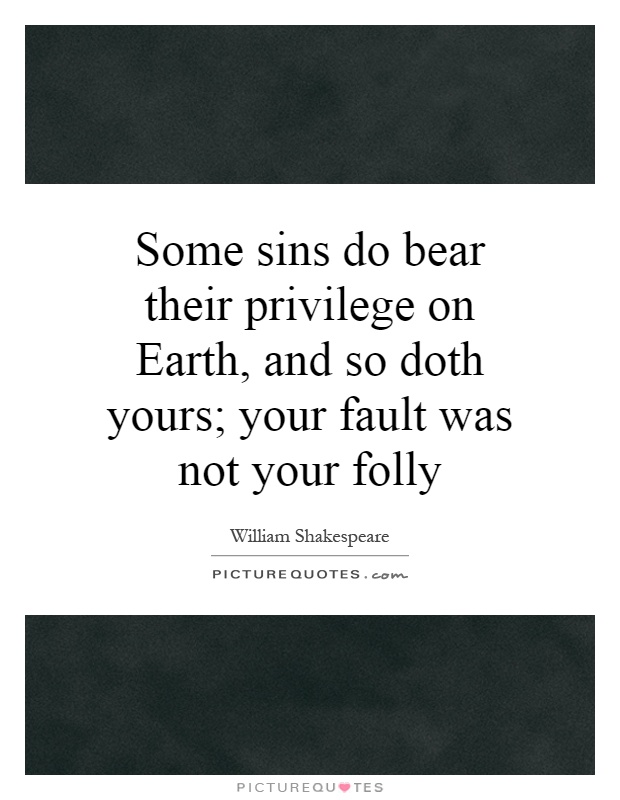Some sins do bear their privilege on Earth, and so doth yours; your fault was not your folly

Some sins do bear their privilege on Earth, and so doth yours; your fault was not your folly
In the world of William Shakespeare, sin and privilege were often intertwined in complex and intriguing ways. The quote "Some sins do bear their privilege on Earth, and so doth yours; your fault was not your folly" speaks to the idea that some individuals are able to commit sins and still enjoy the benefits of their actions, while others are punished for their mistakes even if they were not entirely at fault.One of the most famous examples of this theme can be found in Shakespeare's play "Macbeth." In this tragedy, the title character commits a series of heinous crimes in order to fulfill his ambition of becoming king. Despite his immoral actions, Macbeth is able to maintain his position of power for a time, enjoying the privileges that come with being a ruler. However, his sins eventually catch up with him, leading to his downfall and ultimate demise.
Similarly, in "Othello," the character of Iago manipulates those around him in order to achieve his own selfish goals. Despite his deceitful and treacherous behavior, Iago is able to escape punishment for much of the play, while others suffer the consequences of his actions. This highlights the idea that some sins can indeed bear their privilege on Earth, allowing individuals to benefit from their wrongdoing at the expense of others.
On the other hand, there are also instances in Shakespeare's works where characters are punished for sins that were not entirely their fault. In "The Merchant of Venice," Shylock is portrayed as a villain for seeking revenge on Antonio, but his actions are driven by the discrimination and mistreatment he has faced as a Jewish man in Venice. Despite this, Shylock is ultimately punished for his actions, highlighting the unfairness of the situation and the idea that fault does not always equate to folly.
Overall, the quote "Some sins do bear their privilege on Earth, and so doth yours; your fault was not your folly" encapsulates the complex and nuanced relationship between sin, privilege, and punishment in Shakespeare's works. It serves as a reminder that actions have consequences, but those consequences are not always distributed fairly or justly.












 Friendship Quotes
Friendship Quotes Love Quotes
Love Quotes Life Quotes
Life Quotes Funny Quotes
Funny Quotes Motivational Quotes
Motivational Quotes Inspirational Quotes
Inspirational Quotes